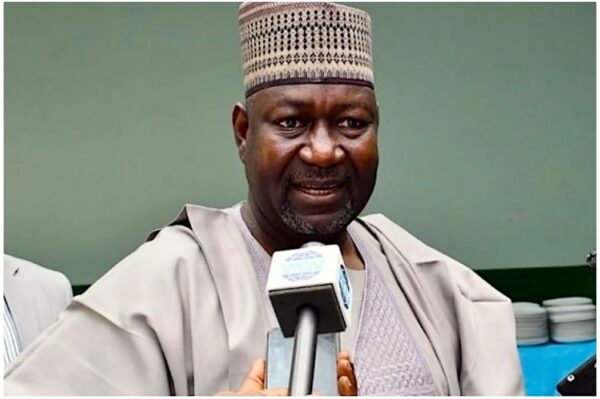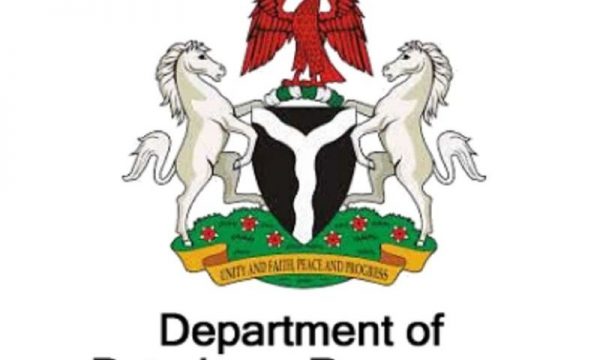Nigeria’s oil sector faces slowdown amid looming divestment
 The nation’s oil and gas sector may not get a much-needed revamp this year as a number of international oil companies operating in the country look set to divest more assets amid a lack of reforms.
The nation’s oil and gas sector may not get a much-needed revamp this year as a number of international oil companies operating in the country look set to divest more assets amid a lack of reforms.
S&P Global Platts reported that Nigeria’s radical move in November to hike taxes on companies operating in its lucrative deepwater blocks might have raised the government’s share of the revenue from oil but could backfire by deterring the IOCs from the country and hindering output growth.
The nation’s oil and gas production structure is majorly split between joint ventures onshore and in shallow water with foreign and local companies and the Production Sharing Contracts in deepwater offshore, to which most of the IOCs have shifted their focus in recent years.
“The prospect of more IOC divestment from Nigeria is looming, especially as the 20-year deepwater production sharing contract agreed in the mid-1990s begins to expire,” a senior African analyst at consultancy Verisk Maplecroft, Ed Hobey-Hamsher, told S&P Global Platts.
“No one will want to be the last major holding a PSC, and a race to divest will depress prices. (President Muhammadu) Buhari shows no willingness to further projects that might rekindle oil and gas development,” Hobey-Hamsher said.
“He believes retaining his control of existing projects is crucial to maintaining his grip on power,” he added.
Buhari’s shift comes as other producers in the region, like Angola and Gabon, sweeten fiscal terms to attract foreign investment into their beleaguered oil sectors.
“A 10 per cent royalty hike marginally reduces Nigeria’s competitive advantage, in a country where investors must also weigh persistent security risks,” a geopolitical advisor at Platts Analytics, Paul Sheldon, said in a recent note.
Nigeria, the biggest African oil producer, saw its oil production grow sharply in 2019, thanks to the start of the 200,000 bpd deepwater Egina field, with output averaging a five-year high of 1.91 million barrels per day, according to Platts estimates.
Militancy in the Niger Delta remained largely dormant in 2019, which helped keep production at elevated levels. But the security situation in the Niger Delta remains fraught as history has shown the region is just a few sparks away from a conflict.
The country has been managing militancy in the restive Niger Delta by continuing amnesty payments, and this will continue into 2020, according to the 2020 budget.
“The real threat is aging infrastructure. Dilapidated pipelines would exacerbate the production disruption caused by even a minor increase in theft or sabotage by up to 300,000 or 400,000 bpd,” Hobey-Hamsher said.
Key export flows on the Trans Forcados pipeline and Nembe Creek Trunk line were frequently targeted by thieves resulting in shutdown on several occasions in 2019.
The country’s oil production prospects, however, remained stunted by the government’s budget deficits.
Platts Analytics said Nigeria’s persistent fiscal deficits, projected by the International Monetary Policy at five per cent of the GDP and nearly 40 per cent of the budget in 2019 and 2020, raised short and medium-term risks to oil supply growth.
Sheldon said, “Fiscal stress puts a spotlight on amnesty payments to Niger Delta militants, which risk being gradually whittled away as 2016 recedes further from memory.
“However, a cut to amnesty payments could quickly change regional security dynamics.”
Nigeria saw its production plummet to a 30-year low of around 1.4 million bpd in mid-2016 due to devastating attacks on oil installations by Niger Delta militants.
Nigeria’s singular piece of legislation aimed at introducing radical reform in its oil sector, the Petroleum Industry Bill, is still gathering dust in the parliament as it continues to bounce between legislative and executive arms of government.
The PIB, which would change the organisational structure and fiscal terms governing the Nigerian oil industry, has been in the works since 2008.
Foreign oil companies have said billions of dollars in investments in the Nigerian oil industry have been held up due to the non-passage of the PIB.
Nigeria aims to increase oil production to three million bpd by 2023, according to a government document.
But industry analysts say the target may elude the country due to the climate of uncertainty the non-passage of the PIB has created.
Most analysts do not expect the bill to be passed this year, which means international oil firms are unlikely to increase their investment in the country unless more attractive terms are offered.
“Buhari could provide a positive signal to investors and temper tumbling investor confidence through a speedy passing of the PIGB in 2020, a prospect however that remains remote,” Hobey-Hamsher said.







